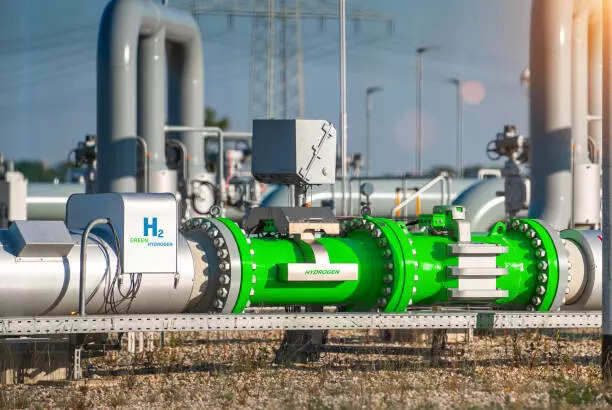
Spanish oil company Cepsa signed on Wednesday two agreements aimed at shipping green hydrogen between Spain and the Netherlands, a day after renewable energy giant Iberdrola took a similar step.
The two Spanish companies are vying to become green hydrogen leaders, with planned investments worth billions of euros. The recent agreements will help them sell part of their expected production of green hydrogen and derivatives to industrial customers eager to decarbonise in Europe‘s economic powerhouse, Germany, and neighbouring countries via the Netherlands.
Green hydrogen is produced using renewable energy and is seen as key to decarbonise Europe’s economy in the future. However, given its cost, green hydrogen projects in general are often not competitive without subsidies.
The agreement Cepsa signed on Wednesday with Yara Clean Ammonia, which is part of Norway’s Yara International, will help establish a green hydrogen maritime corridor between the Spanish port of Algeciras, nearby Cepsa’s green hydrogen hub, and the Dutch port of Rotterdam.
Cepsa, which is partly owned by United Arab Emirates sovereign fund Mubadala, also signed a deal with Dutch company Gasunie to get access to its green hydrogen transport network in the Netherlands.
The Cepsa announcement follows Iberdrola’s move on Tuesday, when it signed two agreements with the same goal: establishing a maritime corridor between Spain and the Netherlands.
Cepsa has pledged to invest 3 billion euros (USD 3.24 billion)in its flagship green hydrogen project in the Spanish region of Andalusia. The plan includes a 1 billion euro green ammonia plant.
Iberdrola’s executive chairman Ignacio Galan said on Tuesday that the company’s planned investments in green hydrogen top 3 billion euros, including a 750 million euro plant in Huelva to produce green ammonia.
(USD 1 = 0.9267 euros)

